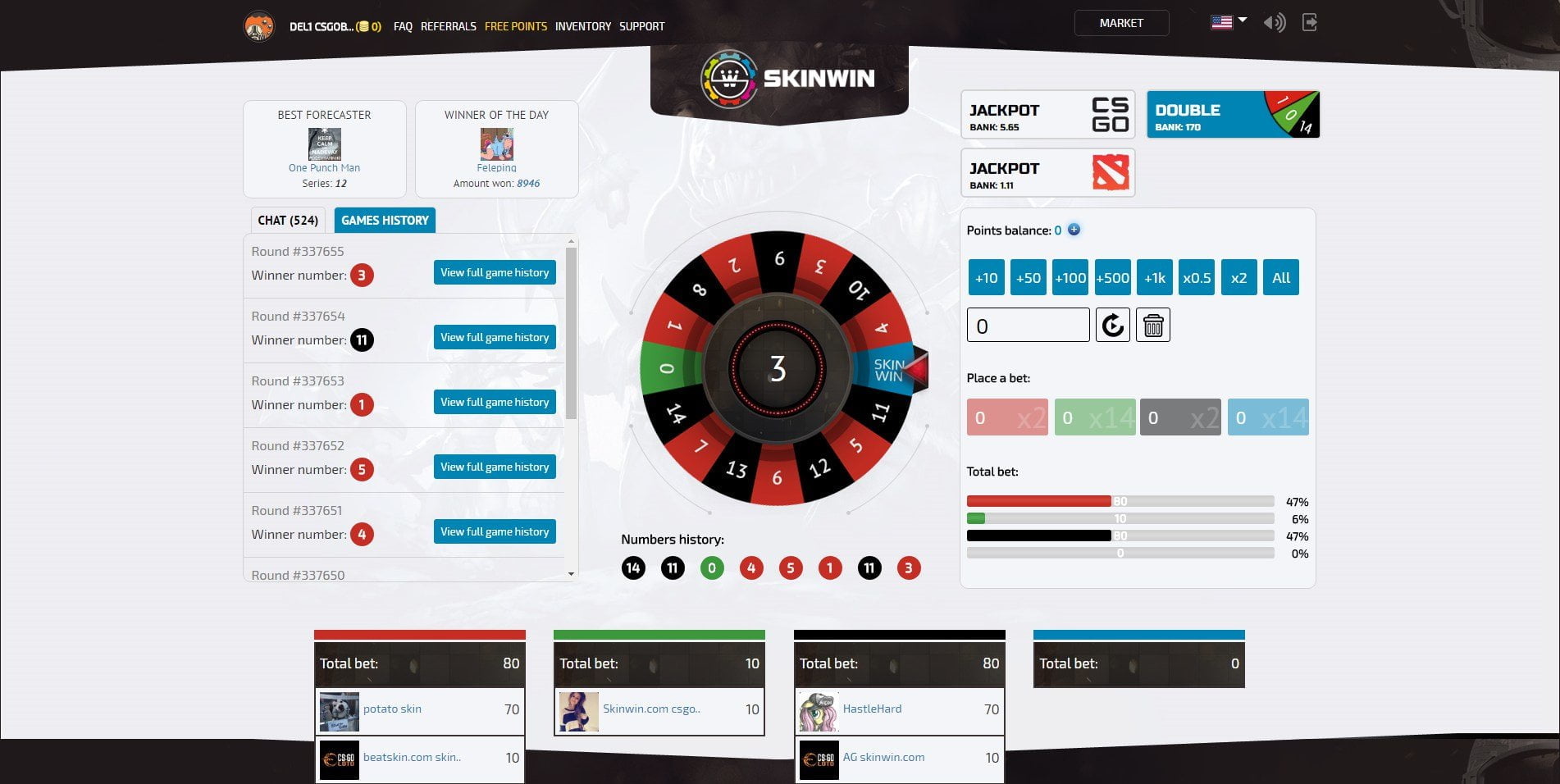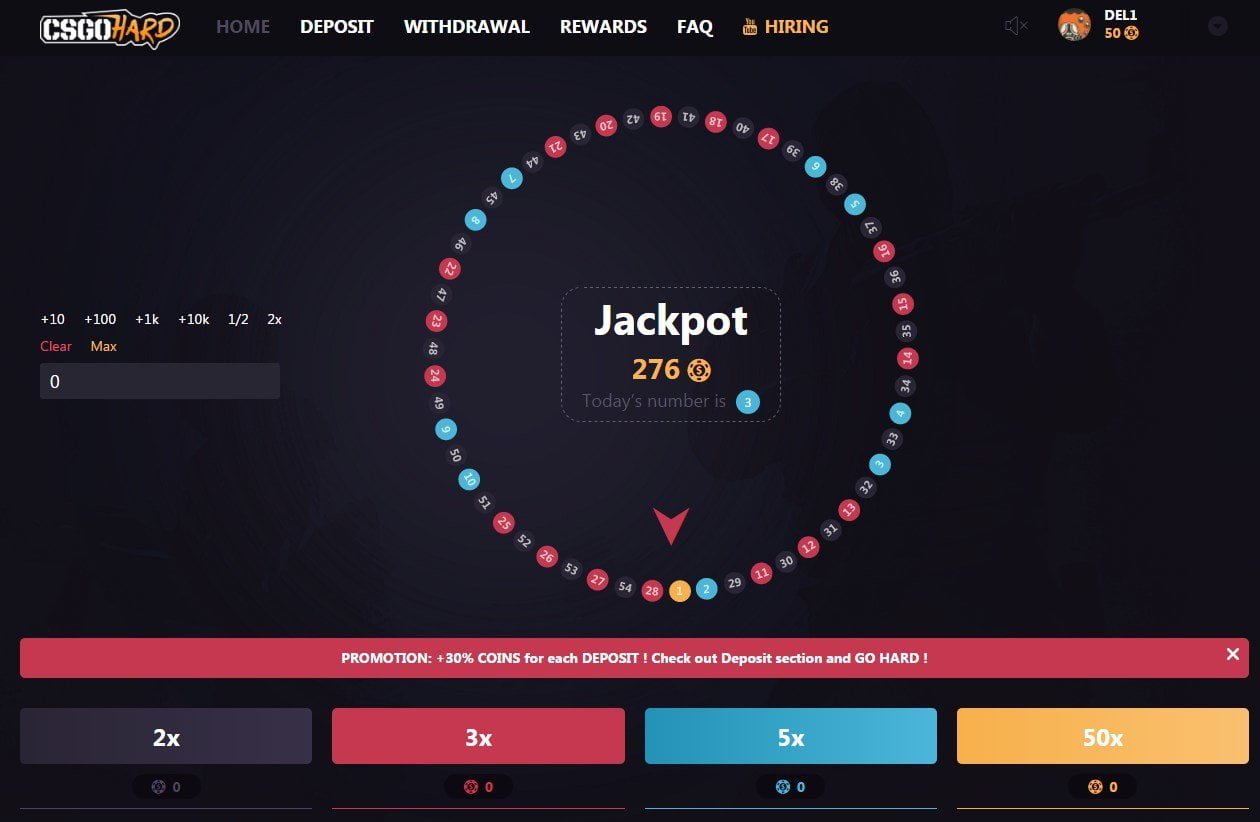D’Alembert Strategy in CS:2 Roulette 🎲

If you’ve ever ventured into the vibrant world of Counter-Strike: Global Offensive (CS2) and the adrenaline-pumping roulette game mode it offers, you’ve probably wondered about the most effective strategies to maximize your chances of winning. One such effective method is the D’Alembert Strategy, often hailed as one of the safest in the realm of CS:2 Roulette. In this article, I’ll take you on a deep dive into the D’Alembert strategy, its application in the game, and tips to use it successfully.
What is the D’Alembert Strategy in CS:2 Roulette?
Before we proceed, let me give you a brief introduction to the D’Alembert strategy. This technique is named after the renowned French mathematician, Pierre-Simon Laplace, who was famously known as the “Marquis de Laplace.” He developed this probability-based strategy, aiming to strike a balance between wins and losses over time.
Unlike the Martingale technique where you’re required to double your bets after a loss, the D’Alembert system advocates a more conservative approach. Here, you start with a base bet and then, for every loss, you increase your bet by one. Conversely, after every win, you decrease the bet by one. This approach ensures you’re potentially in profit by the number of bets placed once you tally an equal number of wins and losses.
Applying the D’Alembert Strategy in CS:2 Roulette
The application of the D’Alembert Strategy in CS:2 Roulette involves a few crucial steps, and yes, a pinch of patience too. Let’s delve into how you can use this strategy in your game:
- Choosing the right wheel: Make sure you select a roulette wheel with a single zero (commonly found in European roulette). This reduces the house edge, slightly tilting the odds in your favor.
- Bet on a color: Place your bets on either red or black. Continue betting on the same color until you lose. After a loss, double your bet on the same color for the next round. If you win, go back to your original bet.
To make it more tangible, consider this example. You place a $1 bet on black and lose. For the next round, you place a $2 bet on black. If you win this round, you go back to the initial $1 bet on black. If you lose again, the bet doubles to $4 on black, and so on. This cycle repeats until you win a round, after which you revert to your original bet.
Balancing the Pros and Cons of the D’Alembert Strategy
While the D’Alembert Strategy doesn’t promise you’ll always emerge victorious, it does provide a structured approach to managing your bets. It reduces the potential for massive losses while still allowing for reasonable profit. Remember, the strategy is a long-term plan; it’s not about immediate wins or losses. Patience, discipline, and a certain risk appetite are necessary.
As with any betting strategy, it’s important to be aware of potential pitfalls. The D’Alembert Strategy can only work effectively if you have enough resources to sustain longer losing streaks. Therefore, always gamble responsibly and with money you can afford to lose.
Tips for Success with the D’Alembert Strategy in CS:2 Roulette
- Begin with a base bet amount that comfortably fits within your bankroll.
- Keep meticulous track of your bets and winnings, using a spreadsheet or notepad.
- Exercise patience and discipline with your bets.
- Don’t let losses cloud your judgment; resist the urge to hastily increase your bets.
- Take breaks and maintain a balanced perspective; remember, it’s a game!

D’Alembert Strategy in Action: A Practical Example
To help you visualize the D’Alembert strategy, let’s consider an example where you start with a base bet of $10. The sequence of events could unfold like this:
- Bet $2 and lose.
- Bet $3 and lose.
- Bet $4 and win.
- Bet $3 and lose.
- Bet $4 and win.
- Bet $3 and win.
- Bet $2 and lose.
- Bet $3 and win.
- Bet $2 and win.
- Bet $1 and lose.
The math for this scenario will be: -$2 – $3 + $4 – $3 + $4 + $3 – $2 + $3 + $2 – $1 = $5. This shows that the strategy can result in a net profit over time. However, patience and a steady nerve are necessary for this approach to pay off.
FAQs: Everything You Need to Know About the D’Alembert Strategy
1. Is the D’Alembert strategy effective in CS:2 roulette?
While the D’Alembert strategy can help manage your bets effectively, it doesn’t guarantee a win. Remember, luck still plays a major role in roulette outcomes.
2. Can the D’Alembert strategy be used in other roulette games?
Absolutely! You can use the D’Alembert strategy in any roulette game, as well as other casino games like blackjack.
3. Is the D’Alembert strategy legal to use in CS:2 roulette?
Yes, the D’Alembert strategy is legal and commonly used in CS:2 roulette and other gambling games. Just ensure to only gamble what you can afford to lose.
Embracing the D’Alembert Strategy in CS:2 Roulette
The D’Alembert strategy, with its cautious approach to betting in CS:2 Roulette, can be an effective tool to balance your wins and losses. It doesn’t promise constant wins, but it does aim to minimize losses and allow for steady gains over time. With patience, discipline, and responsible betting, you can use this strategy to potentially turn your CS:2 Roulette experience into an enjoyable and rewarding pastime. Happy gaming!
Key Facts: D’Alembert Strategy in CS:2 Roulette
- Named after the renowned mathematician Pierre-Simon Laplace.
- Based on the principle of equilibrium, aiming for balance between wins and losses.
- Requires players to increase their bet by one after a loss, and decrease it by one after a win.
- It’s a long-term strategy requiring patience and discipline.
- This strategy can be used in all forms of roulette and other casino games such as blackjack.
- It’s legal and safe to use in CS:2 Roulette and other gambling games.
👍 Pros of D’Alembert Strategy
- It’s a safe and conservative betting system, reducing the risk of large losses.
- It’s easy to understand and implement.
- It helps in managing your betting amounts efficiently.
👎 Cons of D’Alembert Strategy
- It requires patience as the strategy pays off over a long period.
- Players need to have enough resources to sustain losses.
- It doesn’t guarantee a win as luck still plays a crucial role.









